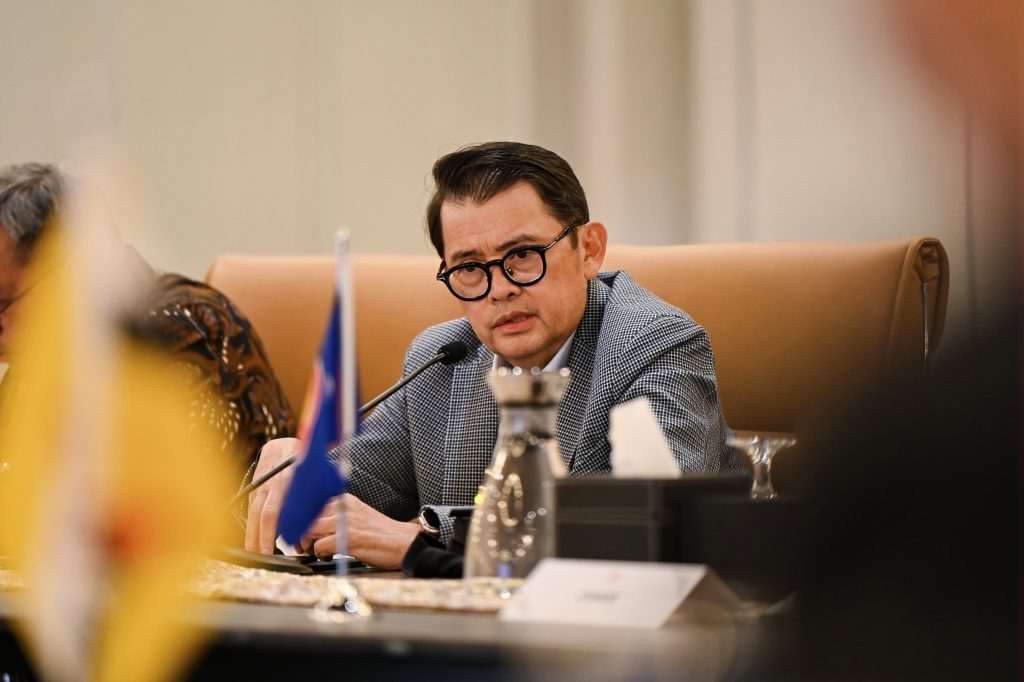
Unity Amidst Diversity
June 23, 2025
Small Entrepreneurs Dream Big In Taguig with Go Negosyo
July 5, 2025
Why Regional Food Security Matters
In a week’s time, the Philippines will be hosting the chairs of the ASEAN Business Advisory Council (BAC). They will be here to start the ball rolling on the Philippines’ upcoming chairmanship of the ASEAN in 2026. It will be a time to reflect on and review the ASEAN BAC’s role in the ASEAN’s integration agenda.
It will be the first time for the ASEAN BAC to hold such an event. As the chair of ASEAN BAC-Philippines and incoming chair of the ASEAN BAC, it will be an opportunity to bring forward what I believe to be a pressing issue and what should be a cornerstone of our regional economic strategy: food security.
The creation of the ASEAN Food Security Alliance (AFSA) is a proactive response to these challenges. This initiative, which we introduced last year, is designed not just to address food security but to foster regional cooperation and bolster value chain development across ASEAN’s food systems. Our mission is clear: to drive scalable solutions in agri-tech and sustainable farming while facilitating dialogue among agribusiness companies, policymakers and key stakeholders.
AFSA is not merely another project; it’s a legacy initiative aimed at moving forward with our collective goal of inclusive growth and ensuring long-term food security across our region.
So, where does the private sector fit into this picture? Agribusinesses hold the key to driving meaningful change in food security. These companies bring the scale, expertise and innovation necessary to tackle this complex issue. By forming a “Big Brother” coalition of agribusinesses, we are fostering partnerships that enable knowledge transfer, investment and collaboration.
The initial successes we have had is proof of concept for these regional partnerships in agriculture. During our recent trip to Malaysia, we formalized a partnership between the Philippines’ Yovel East Research and Development Inc. and Malaysia’s Bornion Green Sdn Bhd to expand plantations for the famed Musang King Durian. This kind of collaboration is essential not just for boosting productivity but also for ensuring that smaller farmers are included in the value chain.
The private sector’s engagement also fuels digital innovation, which is vital for promoting smart, sustainable agriculture. By empowering future generations of agripreneurs and farmers with technology, we can enhance yields, reduce waste and build sustainable practices that are crucial for our agricultural future. I can’t stress enough the role of technology in raising agricultural productivity. Universal Leaf Philippines transformed the tobacco industry in the Ilocos region by using weather forecasting technology. And now we have tools afforded to us because of the advances in artificial intelligence to help us maximize yields and optimize resources.
Beyond technology, AFSA will allow us to better understand local contexts, share best practices and create an integrated regional strategy. Engaging with our neighbors in the region can help in shaping our food and agriculture agenda while finding common ground amidst each of our countries’ unique circumstances. This is not merely about trade; it is about building a shared, sustainable future for ASEAN. It is a broader execution of our vision, which we put forward during the Philippines’ previous ASEAN chairmanship: “Prosperity for All.” It remains relevant today, and is perfectly aligned with ASEAN’s focus on inclusivity and sustainability.
The ASEAN chairmanship in 2026 is pivotal. It’s an opportunity for our government to reaffirm its leadership and deepen the country’s commitment to regional integration. For the President, this chairmanship will serve as a significant milestone, a chance to leave a lasting legacy.
Amid global economic uncertainty, advancing priorities that impact everyday Filipinos – especially our MSMEs – is crucial. ASEAN 2026 is not just a platform; it’s a strategic opportunity to push for policies that foster equitable trade, sustainable development and stronger regional cooperation.
For Filipino MSMEs, this chairmanship can open doors to wider regional markets, a more harmonized policy environment and enhanced access to finance and innovation. By positioning ourselves as leaders in this space, we can amplify our voice in ASEAN and deliver real benefits to our people.
As we prepare for our upcoming chairmanship, the Philippines is not just looking to lead; we want to lead with purpose. Our engagement at the 46th ASEAN Summit and initiatives like the AFSA highlight our mission to make a meaningful impact.
Digital innovation will be at the heart of our strategy. From agricultural technology that boosts productivity to e-commerce and fintech empowering MSMEs, technology serves as a great equalizer. It bridges gaps and fosters inclusive participation in economic growth.
Looking ahead, the Philippines has a unique opportunity to lead in sectors like tourism and the creative industries. By championing women and youth entrepreneurship, we can expand our impact and create a more dynamic regional economy.
As we move forward, food security must remain a top priority – not just as a moral obligation but as an economic imperative. The AFSA is our platform to drive this agenda, and the involvement of agribusinesses is crucial for our success. Together, we can build a robust food system that not only feeds our people but also strengthens our economies.
Originally Published in Philippine Star


2/F RFM Corporate Center, Pioneer cor. Sheridan Sts. Mandaluyong City, Metro Manila, Philippines

